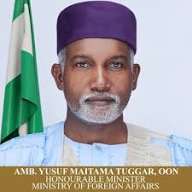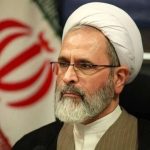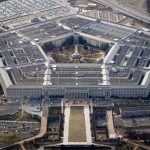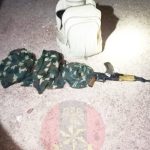By Rismadarvoice, 5 November 2025
In the wake of the renewed public outcry trailing the prevailing security outlook, the Nigerian government has briefed members of the diplomatic corps, where it reiterated its commitment of making national security a top priority of President Bola Tinubu’s administration by adopting a comprehensive approach combining military strength, intelligence, diplomacy and community engagement.
Speaking on behalf of Nigerian Foreign Minister in Abuja, on Wednesday, Permanent Secretary of Nigerian Foreign Ministry, Amb. Dunoma Umar Ahmed said the sustained operations such as operation Hadin Kai and Operation Lake Sanity have degraded Boko Haram and ISWAP, reclaimed vast territories and facilitated the return of millions of displaced persons.
Ahmed said, “National security remains a top priority for President Bola Tinubu administration which has adopted a comprehensive approach combining military strength, intelligence, diplomacy and community engagement.
“Sustained operations such as Operation Hadin Kai and Operation Lake Sanity have degraded Boko Haram and ISWAP, reclaimed vast territories and facilitated the return of millions of displaced persons”.
He informed stated that advanced surveillance technologies were being deployed to combat banditry and kidnapping, while community-based peacebuilding and the National Early Warning and Response System (NEWS) enhance conflict prevention.
He informed that Civil-military cooperation had strengthened trust, improved intelligence gathering, and reduced the recruitment of extremists.
Speaking on religious diversity and democratic resilience, he noted that Nigeria remains a global exemplar of religious plurality and democratic endurance, noting that 1999 Constitution guarantees complete freedom of thought, conscience, and religion and prohibits the adoption of any state religion.
According to him, the Nigerian state was secular in both structure and function; policies and institutions operate without religious bias, ensuring that Christians and Muslims hold leadership positions across all levels.
Ahmed opined that the recent external claims suggesting systemic religious persecution in Nigeria were unfounded.
“The recent designation of Nigeria as a Country of Particular Concern (CPC) based on speculations of religious persecution is fundamentally misinformed. It misrepresents Nigeria’s secular constitutional order and its record in protecting religious freedom.
“Nigeria’s demographic balance, approximately equal Christian and Muslim populations, its interwoven communities, and its functioning multi-religious democracy stand as clear evidence of our coexistence.
“Nigeria’s judiciary has consistently demonstrated its independence, protecting freedom of expression and religion. The state continues to wage a comprehensive counter-terrorism campaign against groups that target Nigerians of all faiths.
” It is therefore inaccurate to characterize Nigeria’s complex security challenges as manifestations of state-sanctioned religious intolerance”, he said.
While refuting the blasphemy and persecution narrative, he opined that Nigeria’s national legal framework contains no offence of blasphemy, stressing that the existing public-order laws are religion-neutral and protect all communities equally from incitement to violence.
He adds:“Sharia laws, limited to some northern states, apply only to Muslims and remain under the oversight of the secular judiciary.
” Christian and Muslim institutions operate freely, promoting peaceful coexistence. Interfaith harmony is sustained through institutions such as the Nigeria Inter-Religious Council (NREC), the Christian Association of Nigeria (CAN) and the Supreme Council for Islamic Affairs (NSCIA)”.










